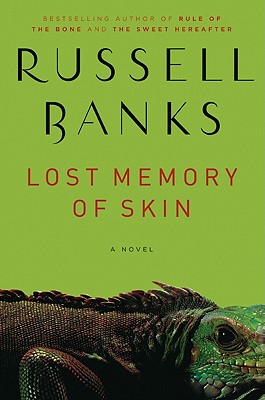 RADIO TIMES
RADIO TIMES
Where do convicted sex offenders live after they’re paroled? Laws vary within the United States and the states themselves, and Miami-Dade County made news the last several years as its ordinance banned registered sex offenders at least 2,500 feet from children, pre-empting the Florida law of 1,000 feet. In 2007 news of paroled offenders making a temporary home without heat and indoor plumbing under the infamous Julia Tuttle Causeway started making headlines. This squalid colony has since been disbanded, leaving many of the former residents homeless and in legal limbo. Novelist RUSSELL BANKS, who lives part-time in Miami, comes in to discuss his 12th novel, “Lost Memory of Skin,” about a lonely young man on recent probation after serving time for a liaison with an underage girl, living under a South Florida causeway with other registered sex offenders, who is a subject of study by a hedonistic sociologist. Banks is the author of “The Sweet Hereafter” and “Affliction,” which have been adapted into feature films. MORE
RUSSELL BANKS WILL READ FROM “LOST MEMORY OF SKIN” TONIGHT AT THE FREE LIBRARY
FRESH AIR
Writer Jeffrey Eugenides laments the fact that he was born too late to write a novel about marriage in the style of writers like Jane Austen and Henry James. “I envy writers who came from a world where social constrictions were still normative and they could still write marriage plots,” he tells Fresh Air‘s Terry Gross. “I couldn’t, being an American born in 1960. … I didn’t think it was possible to write a Jane Austen novel now, and in fact, it isn’t. But I did want to traffic in the same ideas.” Eugenides is the Pulitzer Prize-winning author of Middlesex. His 1993 novel, The Virgin Suicides, was adapted for film by director Sofia Coppola. His new novel, The Marriage Plot, involves a romantic triangle among three college students. Madeleine is an ambitious English major studying semiotics. Mitchell is a religious scholar from Detroit who travels to India to work with Mother Teresa; and Leonard is a brilliant philosophy student and a manic-depressive. All three are about to graduate from Brown University in 1982. Eugenides also studied at Brown in the ’80s when semiotics — the study of symbols and signs — was just beginning to create a noticeable chasm within the Brown English Department.
of writers like Jane Austen and Henry James. “I envy writers who came from a world where social constrictions were still normative and they could still write marriage plots,” he tells Fresh Air‘s Terry Gross. “I couldn’t, being an American born in 1960. … I didn’t think it was possible to write a Jane Austen novel now, and in fact, it isn’t. But I did want to traffic in the same ideas.” Eugenides is the Pulitzer Prize-winning author of Middlesex. His 1993 novel, The Virgin Suicides, was adapted for film by director Sofia Coppola. His new novel, The Marriage Plot, involves a romantic triangle among three college students. Madeleine is an ambitious English major studying semiotics. Mitchell is a religious scholar from Detroit who travels to India to work with Mother Teresa; and Leonard is a brilliant philosophy student and a manic-depressive. All three are about to graduate from Brown University in 1982. Eugenides also studied at Brown in the ’80s when semiotics — the study of symbols and signs — was just beginning to create a noticeable chasm within the Brown English Department.

